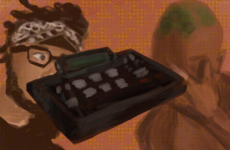
Graphic scenes of running people, sweeping fires, and spraying water cannons were broadcasted from Israel’s economic and technological center, Tel Aviv. Recent protests have substantially altered life in the city, causing blocked roads, disrupted train services, inaccessible airports, suspended education, nonoperating banks, and closed hospitals. Despite the mass disruption and chaos in Tel Aviv, these protests are justified.
Sparked by Prime Minister Benjamin Netanyahu’s decision to fire his defense minister, Yoav Gallant, the protester’s anger stemmed from what the dismissal represented: silencing opposition towards the government’s plans to overhaul the judiciary. These plans come with many controversial proposals, including allowing a simple majority in the Knesset, the unicameral legislature of Israel, to override Israeli Supreme Court rulings, allowing politicians to appoint most justices, and allocating more constitutional power to the government.
The main issue of this rapid overhaul is its goal of over-centralizing government power. The proposed judicial changes pose a tremendous risk by reducing checks and balances against unconstitutional government motions and invalidating the Israeli Supreme Court’s role.
Rather than representing power allocation within different parts of the government, the issue has evolved into other complex debates, such as Judaism versus secularism, conservatism versus liberalism, and government consolidation versus enforcing checks and balances.
Those who criticize the Court say that it reduces the power of democracy as elected lawmakers should not have total power or control. They note that the government’s plan to obstruct the power of the Supreme Court, which right-wing members of Knesset proposed, was primarily influenced by the Court’s backing of Israel’s withdrawal from the Gaza Strip.
On the other hand, Netanyahu proclaims that increased political power for the government was necessary, explaining that the judiciary has accumulated increased authority and needs to represent Israeli diversity. However, critics reveal that the current circumstances of being faced with trial for corruption charges likely influenced his desire for regressive change. Netanyahu could use the government’s new judicial power to extricate himself from his legal problems.
In recognition of political instability and power shifts, Tel Aviv’s protestors seek to protect their nation. Many of the 200,000 protestors are secular, central, and left-wing citizens who fear that the government proposals will threaten their previously guaranteed freedoms under the judicial power of the Supreme Court. They believe the change will threaten their democracy by providing unchecked power to elected officials, which would disproportionately affect those who have contrasting views to that of the right-wing Netanyahu.
Another group that opposes the judicial overhaul is those involved in the military. They fear being given illegal orders to advance government goals without the judgment of the Supreme Court. Furthermore, military reservists were infuriated by the firing of the defense minister, who had previously represented those in the military. In fact, even before the former defense minister’s dismissal, members of Israel’s Defence Forces refused to train in protest of the government’s plans.
The protests have not been entirely successful in their goal, but they have created a temporary pause in the judiciary overhaul’s advancement. By showing the importance of using their voice and will change their society, the protests in Tel Aviv serve as a symbol of revolution. Protestors show no signs of slowing and will likely continue until the cancellation of the judicial overhaul. The reduction of checks and balances and the over-centralization of power at the expense of the people are issues severe enough to justify the protestors’ actions despite their harm in the short run.




